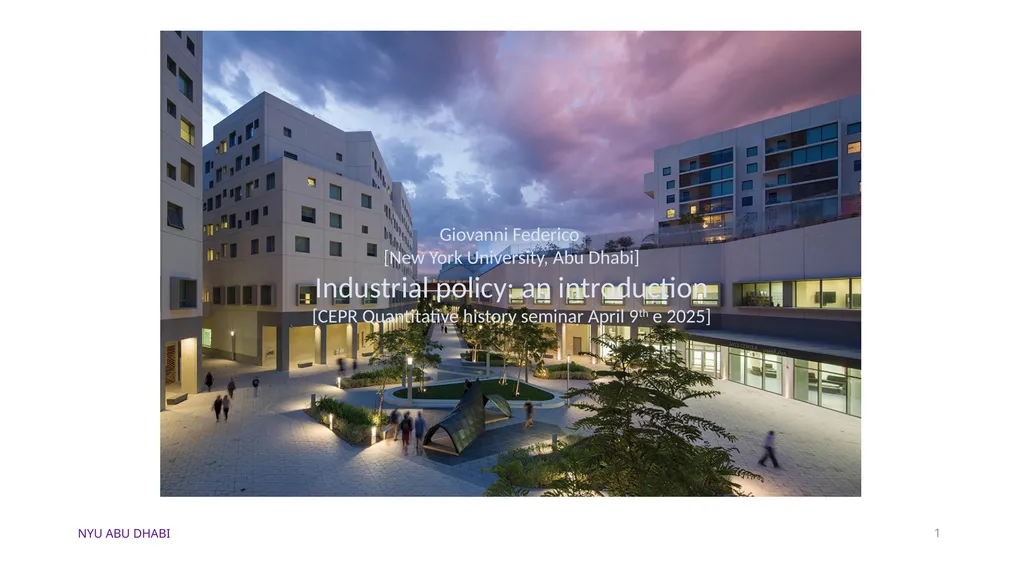
Author : test | Published Date : 2025-05-24
Description: 1 Giovanni Federico New York University, Abu Dhabi Industrial policy: an introduction CEPR Quantitative history seminar April 9th e 2025 The industrial policy is a set of government actions purposefully directing and supportingDownload Presentation The PPT/PDF document "" is the property of its rightful owner. Permission is granted to download and print the materials on this website for personal, non-commercial use only, and to display it on your personal computer provided you do not modify the materials and that you retain all copyright notices contained in the materials. By downloading content from our website, you accept the terms of this agreement.
Here is the link to download the presentation.
"1 Giovanni Federico [New York University, Abu"The content belongs to its owner. You may download and print it for personal use, without modification, and keep all copyright notices. By downloading, you agree to these terms.













